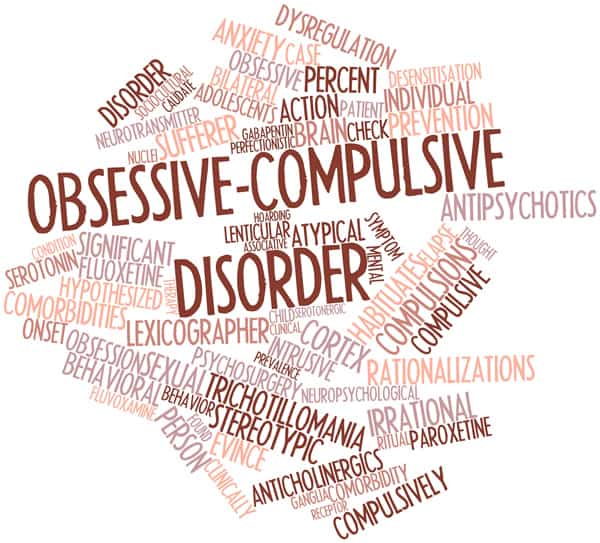*This newsletter is intended to offer information only and recognizes that individual issues may differ from those broad guidelines. Personal issues should be addressed within a therapeutic context with a professional familiar with the details of the problem. Copyright 2018 Simmonds Publications: 550 La Jolla Blvd., 306, La Jolla, CA 92037
Obsessive-Compulsive Disorder was once thought to be a fairly rare but serious mental problem. Specialists saw is as serious mainly because the behavior of a person with this disorder appears quite abnormal to other people. About one in forty people suffers from OCD, and many cases go undiagnosed, so we now know that it is not so rare a condition. The more researchers discovered about OCD, the more they saw that people with this disorder are normal in most respects.
All of us have habits or patterns of living that make our lives infinitely easier. Our morning grooming routine, for example, repeats itself in just about the same way each day. Think about how chaotic and difficult our lives would be if we didn’t have well-learned habits to rely on and instead had to create a new routine every morning. For the person with OCD, however, this habitual behavior interferes with the smooth flow of everyday living and these habits cause them anxiety and worry.
People with OCD often feel that they are losing their minds, although this is far from the truth. They realize that their thoughts and behaviors might be seen by others as bizarre, so they try to hide these patterns. This part of their lives is led in secret and they try to present themselves on the outside as being as normal as possible. They might feel that no therapist, and certainly no friend or relative, could possibly understand what they experience privately every day. It is when the rituals become so time-consuming and the person is no longer able to function on the job or at home that the victim of OCD seeks help. Thus, the number of people with OCD far exceeds the number who actually receive treatment for the disorder. Happily, OCD does not need to be a debilitating life condition. Although there is no cure at this point, the symptoms can be controlled so that OCD need not interfere with normal everyday living.
